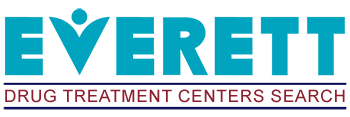Meth Addiction in Everett, MA
A wide range of drugs are known to cause problems in society, including alcohol, prescription medications, and illicit street drugs. Methamphetamine, also known as meth, is a potent and highly dangerous street drug that has been associated with a number of physical and psychological health problems. The regular abuse of meth can easily lead to meth addiction, a state characterized by increased tolerance, drug cravings, and the existence of emotional and motivational withdrawal symptoms when drug intake is stopped. Meth addiction often requires professional drug treatment, including detoxification, rehabilitation, and aftercare support.
Effects of Meth
Meth is a powerful central nervous system (CNS) stimulant, with this drug sometimes prescribed to treat attention deficit hyperactivity disorder (ADHD) and certain sleep disorders. Meth is one of the most widely abused drugs in the United States, where it is taken by users to increase energy levels, enhance sexual desire and performance, and induce euphoria. The physical effects of meth consumption include high blood pressure, increased movement, insomnia, teeth grinding, agitation, loss of appetite and much more. Prolonged exposure to meth can also lead to depression, anxiety, and a condition known as meth-induced psychosis. Meth has also been associated with a range of adverse social effects in the wider community, including an increased propensity for violence and crime.
What is Addiction?
Addiction is defined as the compulsive engagement in rewarding stimuli despite the existence of negative consequences. While most drug and alcohol treatment centers deal exclusively with psychoactive substance problems, it is also possible for people to get addicted to certain rewarding behaviors such as gambling and sex. Addictions are both intrinsically rewarding and positively reinforcing, meaning that people seek repeated exposure even when adverse effects become apparent. Meth addiction is not associated with physical-somatic withdrawal symptoms like those experienced by alcoholics and opiate addicts, with dependent users experiencing things like drug cravings, anxiety, insomnia, and depression when drug intake is stopped.
Drug Treatment
There are many ways to treat meth addiction, including cognitive behavioral therapy, relapse prevention, and aftercare support regimes. While medical detox and medication therapy is largely ineffective for the treatment of meth addiction, some drugs may be used to help stabilize patients and allow them to rest during detoxification. Most rehab programs are based on cognitive, motivational, and behavioral treatment methods, including things like art therapy, music therapy, moral reconation therapy, and group counseling. Conventional 12-step facilitation can also be used to treat meth addiction, with Crystal Meth Anonymous set up as an alternative to traditional Alcoholics Anonymous (AA) meetings.
Aftercare
Patients are much less likely to relapse when they have access to aftercare programs and ongoing support systems. Meth addicts benefit greatly from support in the weeks and months that follow rehab, including access to sober living centers, SMART Recovery programs, and relapse prevention groups. If you or anyone you know is struggling with meth abuse or addiction, let Everett Drug Treatment Centers help. Just give one of our caring recovery advocates a call today at (617) 553-9495.
